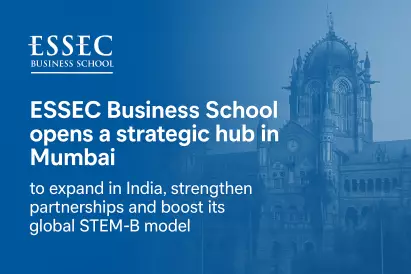Summary: Explore the evolving landscape of master’s education in Denmark in 2025. This article covers industry-aligned reforms, digital transformation, internationalization, and strategies to enhance curriculum quality and accessibility. Discover key trends, challenges, and future opportunities for graduates and institutions.
The Danish Labour Market and Education in Context
Denmark’s master’s degrees—known traditionally as Candidatus or Cand.—form the backbone of the country's higher education. These programs integrate academic depth with advanced research capabilities, positioning graduates for entry into a high-skill labour market.
By 2025, nearly 50% of the workforce is expected to possess advanced qualifications as demographic shifts phase out less qualified workers and younger, tech-savvy cohorts take their place. Expansion in specialized job roles, reflected in the Positive List, underscores this demand.
This evolution aligns directly with Denmark's innovation-centric economic strategy. Universities now act as vital conduits, blending academic tools with industry needs.
Parallel developments in fields like industrial and operations management and entrepreneurship reinforce this university-market synergy.
Popular Fields and Interdisciplinary Growth
By 2025, Danish universities will be adapting to shifting student and employer preferences. While STEM fields remain dominant, there is a steady rise in demand for programs that fuse technical know-how with business and social perspectives.
Careers in digital transformation, healthcare, and green technologies are surging, nudging master’s programs toward more interdisciplinary offerings.
For example, students pursuing public health and health economics increasingly need cross-functional skills to navigate complex global systems. This diversification ensures curriculum relevance and opens up access to dynamic employment sectors.
Structural Reforms and Flexible Pathways
Ahead of 2025, Denmark is overhauling up to 30% of master’s programs. These changes include reducing some programs to 75 ECTS (1¼ years) or pivoting them into vocational tracks that combine study and practical industry placement.
The reforms aim to equip graduates with immediate job-readiness while retaining academic integrity.
However, not all transitions are smooth. According to a government committee, only about 7% of programs can realistically undergo conversion within current funding structures.
While well-intentioned, the scale of implementation may be limited unless supplemented by targeted investment and innovative learning modalities like executive MBAs or part-time MBAs that offer more industry exposure.
Digital and Hybrid Learning Innovations
Denmark’s academic institutions have long embraced project-based models. The COVID-19 pandemic accelerated integration of online learning tools into these systems.
Today, hybrid and digital components are widespread, enhancing accessibility and making collaboration with international partners more seamless.
The rise of virtual learning environments is particularly beneficial for fields like information systems management and data analytics, where students can interact with real-time technological solutions.
This trend supports continuously updated content delivery while accommodating working professionals.
Denmark’s Global Education Appeal
Denmark remains one of the most sought-after study destinations in Europe, thanks to its high English proficiency and internationally recognized degrees.
A significant proportion of master’s programs are taught in English, attracting diverse students from EU/EEA and non-EU countries alike.
The inclusion of foreign professionals in Positive Lists signals Denmark’s strategic alignment with global employment standards.
International students not only enhance classroom diversity but also feed into the talent pipeline across sectors like health management and digital marketing.
Funding, Affordability, and Student Support
Higher education remains tuition-free for EU/EEA students, while international students pay substantial fees—but are eligible for select scholarships.
Local students benefit from the SU grant, a government-funded monthly stipend. Proposed reductions in degree lengths, however, might have unforeseen implications on overall student support and accessibility.
Affordability remains a concern, particularly for those dependent on income through part-time work or grants.
The same applies to non-EU international students seeking value through globally ranked programs in sectors such as supply chain and finance.
Student Demographics and Changing Expectations
Incoming master’s students in 2025 are diverse—not just culturally but also in age and career stage.
With the rise of lifelong learning, older professionals often return for upskilling, while younger students seek compact, career-aligned paths with definitive trajectories.
This has increased demand for master’s pathways offering part-time, evening, and hybrid options across domains—including creative sectors like cultural management and dynamic fields such as business strategy.
Challenges in Quality Assurance and Regulation
The complexity of implementing reforms—ranging from new program formats to regulatory updates—has introduced uncertainty into the system.
Lack of clarity over accreditation timelines and curriculum standardization could confuse prospective students and hinder international competitiveness.
A balance must be struck between flexibility and consistency.
In evolving sectors like environmental security, changes must reflect rapidly shifting industry needs while maintaining academic organization and distinction.
Looking Ahead: Innovations and Opportunities
The future of Denmark’s master’s education lies in blending traditional academic values with evolving pedagogies.
Curricula may soon include stackable credits, virtual simulations, and micro-credentials—making education more modular and employment-aligned.
Close ties between policymakers, universities, and businesses will determine if changes bear long-term fruit. Employers are already seeing the benefits of graduates trained in real-world challenges.
If managed properly, master’s education will continue driving Denmark’s knowledge economy through key innovations in fields like project and innovation management.



